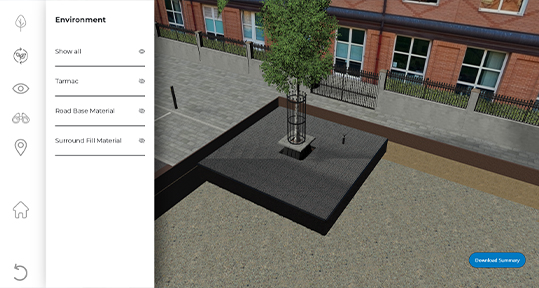Newmarket is a market town in the English county of Suffolk, approximately 65 miles north of London. It is generally considered the birthplace of thoroughbred horse racing and a potential World Heritage Site.
Newmarket is a market town in the English county of Suffolk, approximately 65 miles north of London. It is generally considered the birthplace of thoroughbred horse racing and a potential World Heritage Site.
Being the largest racehorse training and breeding centre in the UK, Newmarket is home to most major British horseracing institutions and a key global centre for horse health.
Located in the South of the town, Vicarage Road sees home to All Saints’ Church of England Primary School; situated within the parish of All Saints’, with proximity to the church itself, for which both have close links. The school prides itself in working closely with the local community and serving the children and their families.
A member of the St. Edmundsbury & Ipswich Diocesan Multi Academy Trust, the school has strong Christian values in order to educate and develop pupils with an aim to provide a stimulating, caring and a secure environment for each child.
Project
Location
Contractor
Landscape Architect
Newmarket is a market town in the English county of Suffolk, approximately 65 miles north of London. It is generally considered the birthplace of thoroughbred horse racing and a potential World Heritage Site.
Newmarket is a market town in the English county of Suffolk, approximately 65 miles north of London. It is generally considered the birthplace of thoroughbred horse racing and a potential World Heritage Site.
Being the largest racehorse training and breeding centre in the UK, Newmarket is home to most major British horseracing institutions and a key global centre for horse health.
Located in the South of the town, Vicarage Road sees home to All Saints’ Church of England Primary School; situated within the parish of All Saints’, with proximity to the church itself, for which both have close links. The school prides itself in working closely with the local community and serving the children and their families.
A member of the St. Edmundsbury & Ipswich Diocesan Multi Academy Trust, the school has strong Christian values in order to educate and develop pupils with an aim to provide a stimulating, caring and a secure environment for each child.
Project
Location
Contractor
Landscape Architect
Project
Location
Contractor
Landscape Architect
‘This is a good school, highly regarded by parents and carers as an inclusive and supportive ‘family’ school where all pupils are able to succeed’
Built in 1869, rebuilt in 1974 and extended several times, outside space is largely hard-surfaced, hosting a multi-use games area and a tarmac playground. Behind the school and opposite, equine establishments provide a green backdrop to the largely residential area, consisting mainly of terrace housing with no front gardens; all with drainage to the combined sewage network. The town centre is downstream from the school and has a history of flooding from both rain events and river overflow.
Anglian Water working in conjunction with West Suffolk Council and Newmarket Town Council developed a long-term strategy for the town to manage the stormwater inflows to the combined sewer and to create a live working model for Sustainable Urban Drainage (SuDS) applications. Using Hydraulic modelling and flow surveys it became apparent that the impermeable surface area of the school amounted to 1400m2 – clearly giving an opportunity for change.
Working with the School and Anglian Water, Atkins devised a drainage survey plan to cope with a 30-year return storm event and divert water that was flowing directly into the foul sewer, principally from its roof and car park. A number of different SuDS features were considered and the best options were chosen, leading to 100% of the impermeable surface water ending up in a soakaway.
‘This is a good school, highly regarded by parents and carers as an inclusive and supportive ‘family’ school where all pupils are able to succeed’
Built in 1869, rebuilt in 1974 and extended several times, outside space is largely hard-surfaced, hosting a multi-use games area and a tarmac playground. Behind the school and opposite, equine establishments provide a green backdrop to the largely residential area, consisting mainly of terrace housing with no front gardens; all with drainage to the combined sewage network. The town centre is downstream from the school and has a history of flooding from both rain events and river overflow.
Anglian Water working in conjunction with West Suffolk Council and Newmarket Town Council developed a long-term strategy for the town to manage the stormwater inflows to the combined sewer and to create a live working model for Sustainable Urban Drainage (SuDS) applications. Using Hydraulic modelling and flow surveys it became apparent that the impermeable surface area of the school amounted to 1400m2 – clearly giving an opportunity for change.
Working with the School and Anglian Water, Atkins devised a drainage survey plan to cope with a 30-year return storm event and divert water that was flowing directly into the foul sewer, principally from its roof and car park. A number of different SuDS features were considered and the best options were chosen, leading to 100% of the impermeable surface water ending up in a soakaway.
GreenBlue Urban was privileged to support with the focal point SUDS ArborFlow Tree Pit located directly at the front of the school. Specifically designed as an environmentally friendly solution for attenuating stormwater run-off, the tree pit was one part of an array of applications. This tree will assist a nearby rain garden by taking on excess water through permeable surfaces and inlets and slowly percolating down into the RootSpace Soil Cell system, and the bio-remediation soil. This growing medium filters harmful pollutants, which are collected and broken down, isolated and stopped from entering watercourses.
Additional SuDS features installed include above-ground planters, with a controlled outflow pipe direct to the soakaway. These were designed to give an element of fun for the students and, along with the rain garden, will be maintained and replanted where necessary by the school each year.
This case study is a wonderful example of cross-disciplinary collaboration; from the landowner to contractor including the lead local flood authority; it’s great to see such initiatives within the SUDS community. Anglian Water’s strategy from the outset was to involve the local residents and will be used as an exemplar site for future enhanced education (namely the Schools Programme) with resources that will educate on the impacts of climate change on our growing towns and cities.
Congratulations to all involved: we are convinced that there will be a wealth of collaborative project studies moving forward. Education is key to understanding the options available to mitigate flooding: however, collaboration and implementation are even more important if we are to ensure that these effective interventions occur.
GreenBlue Urban was privileged to support with the focal point SUDS ArborFlow Tree Pit located directly at the front of the school. Specifically designed as an environmentally friendly solution for attenuating stormwater run-off, the tree pit was one part of an array of applications. This tree will assist a nearby rain garden by taking on excess water through permeable surfaces and inlets and slowly percolating down into the RootSpace Soil Cell system, and the bio-remediation soil. This growing medium filters harmful pollutants, which are collected and broken down, isolated and stopped from entering watercourses.
Additional SuDS features installed include above-ground planters, with a controlled outflow pipe direct to the soakaway. These were designed to give an element of fun for the students and, along with the rain garden, will be maintained and replanted where necessary by the school each year.
This case study is a wonderful example of cross-disciplinary collaboration; from the landowner to contractor including the lead local flood authority; it’s great to see such initiatives within the SUDS community. Anglian Water’s strategy from the outset was to involve the local residents and will be used as an exemplar site for future enhanced education (namely the Schools Programme) with resources that will educate on the impacts of climate change on our growing towns and cities.
Congratulations to all involved: we are convinced that there will be a wealth of collaborative project studies moving forward. Education is key to understanding the options available to mitigate flooding: however, collaboration and implementation are even more important if we are to ensure that these effective interventions occur.









